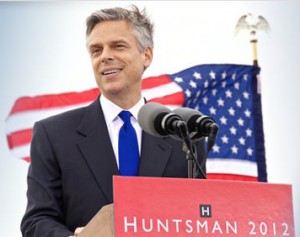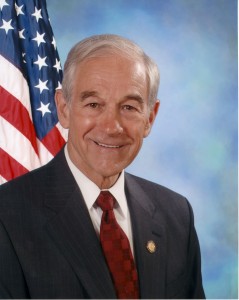 Summary. Party loyalists typically don’t extend their vision or efforts beyond the myopic lens of the party they support. This is a mistake for the reasons presented below. As this short document explains, people will have maximum impact when influencing multiple political parties.
Summary. Party loyalists typically don’t extend their vision or efforts beyond the myopic lens of the party they support. This is a mistake for the reasons presented below. As this short document explains, people will have maximum impact when influencing multiple political parties.
Fully Engaged Democracy. Those who only work within their party are only half engaged in the democratic process. For example, in the 2012 election year, most Democratic Party members won’t consider supporting anyone other than Barack Obama in 2012. However, this election year offers an opportunity for Democratic Party members to register as Republicans and help influence the Republican choice for president — the person who may end up being our next president. Given that there is about a 50/50 chance that a Republican may be our next president, it makes sense to be engaged in the selection process. Republicans have a similar opportunity to support Democratic Party candidates they feel are more inline with issues they care about.
Campaigning to Win. Presidential campaigns are regularly lost because party extremists won’t support the party’s more mainstream and likely to be elected candidates. Dennis Kucinich (D-Ohio) and Mike Huckabee (R-Arkansas) are examples of politicians who have been consistently re-elected in states where a majority of voters were from the ‘other’ party. This is because they are moderate, yet still able to advance the agenda of their party. This diplomacy is essential to avoid political gridlock and allows a leader to achieve party goals by negotiating across party lines. They do this by creating abundant bi-partisan support from demonstrating administrative competence and achieving common socially beneficial objectives. Yet, when running for president, Kucinich and Huckabee didn’t get their party’s full support because it was believed they weren’t electable or were too moderate for the party.
Beyond the Election. It’s a good idea to identify and support candidates like those mentioned above because they have a positive influence on their party even when they don’t win.
Uniting America. Extremist candidates are divisive, but moderate candidates foster collaboration and unity by focusing on solutions that bring people together. Supporting moderate candidates gives people from possibly different parties an opportunity to work together.
Candidates Worth Supporting
 Jon Huntsman. According to a recent New York Times poll, Jon Huntsman has the greatest chance of winning in an election against Barack Obama. Depending on economic conditions, Huntsman may be as likely as 70% to 99% able to win in the 2012 presidential election. This makes Huntsman the smart choice for Republicans who want to win in 2012. Democrats should support Huntsman as the Republican choice because he is campaigning on non-partisan issues that everyone can support: jobs & the economy, national security, education reform, foreign policy, energy security, and financial regulatory reform.
Jon Huntsman. According to a recent New York Times poll, Jon Huntsman has the greatest chance of winning in an election against Barack Obama. Depending on economic conditions, Huntsman may be as likely as 70% to 99% able to win in the 2012 presidential election. This makes Huntsman the smart choice for Republicans who want to win in 2012. Democrats should support Huntsman as the Republican choice because he is campaigning on non-partisan issues that everyone can support: jobs & the economy, national security, education reform, foreign policy, energy security, and financial regulatory reform.
 Ron Paul. For some of the key issues that the Democratic Party claims to care about (like healthcare and bringing troops home), Ron Paul seems like a better choice than Obama. He’s considered a more appealing candidate among conservative Republicans, yet also appealing to Democrats concerned about government corruption and other non-partisan issues. Ron Paul’s campaign is centered around a portfolio of issues that are of importance to the left and the right — some conflicting, yet others not in conflict. The video below presents an introduction to Ron Paul and his campaign for president.
Ron Paul. For some of the key issues that the Democratic Party claims to care about (like healthcare and bringing troops home), Ron Paul seems like a better choice than Obama. He’s considered a more appealing candidate among conservative Republicans, yet also appealing to Democrats concerned about government corruption and other non-partisan issues. Ron Paul’s campaign is centered around a portfolio of issues that are of importance to the left and the right — some conflicting, yet others not in conflict. The video below presents an introduction to Ron Paul and his campaign for president.